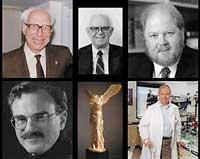No exceptions in old rules
2021/11/05 Galarraga Aiestaran, Ana - Elhuyar Zientzia Iturria: Elhuyar aldizkaria

"It's five in the afternoon," Ana told me, almost whispering.
How do you know that?
By the projection of the sun on the wall. It creates an angle, and through trichometry, I look at the sinus and the breast, I know. I learn astronomy.
We are still talking...'
Thus begins the text of Emilce Graciela Moler Izarren hautsa. Roberto Taboada, txiolari, recently recalled that Ana Teresa Diego is an Argentinian and Communist astronomy student. In 1976, when he left La Plata University, he was kidnapped and destroyed by the police of the dictatorship, 21 years old. In 2012, their bones were found in a common pit of Avellaneda. Just a few months earlier, the International Society of Astronomy called Anadiego an asteroid, number 11,441, discovered in 1975 from the El Leoncito observatory (Argentina).
The story is exciting and nomination is an exception. Not only because I remember a victim, but also because the cheer is a woman. Because it's not the usual thing, nor the 21st century. Also in the 20th century. On the contrary, recognition of women still has exceptions.
Proof of this are the Nobel Prizes. Last year, for the first time, two women, not sharing with any man, received a science award, that of Chemistry. Emmanuelle Charpientier and Jennifer Doudna are awarded for the development of the CRISPR-Cas9 gene editing tool. And one of the physics prizes is women. [Andrea Ghez]. However, women did not reach half of the science awards: three out of eight.
They were an exception. With them, in Nobel history, 24 women have been awarded prizes. Men, for their part, are 606. That is, women do not reach 4%. And in recent years, the trend has not changed. This same year many expected Katalin Karikó, the mother of DNA vaccines, to be among the winners, but in the end, of the seven winners, the seven are men.
The Nobel Prizes are standard and model, so discrimination is repeated in other recognitions and there is no great evidence of rejection of the machiatic criteria.
For example, for a few months there have been doubts about whether NASA would change the name of the telescope James Webb. This telescope is the substitute for the prestigious Hubble Space Telescope and will be placed in space in December. NASA decided to convene James Webb in honor of the government official responsible for NASA between 1961 and 1968 to promote the Apollo program.
However, in May, more than 1,200 people, including the astronomers who will use this telescope, signed an application for a change of name for discrimination against LGTBI people. In the 1950s and 1960s, he published gays and lesbians for his sexual orientation. NASA promised to investigate the complaint and has just pronounced: it has found no evidence of LGTBIphobia and has not changed the name of the telescope. There are no exceptions.

Gai honi buruzko eduki gehiago
Elhuyarrek garatutako teknologia






